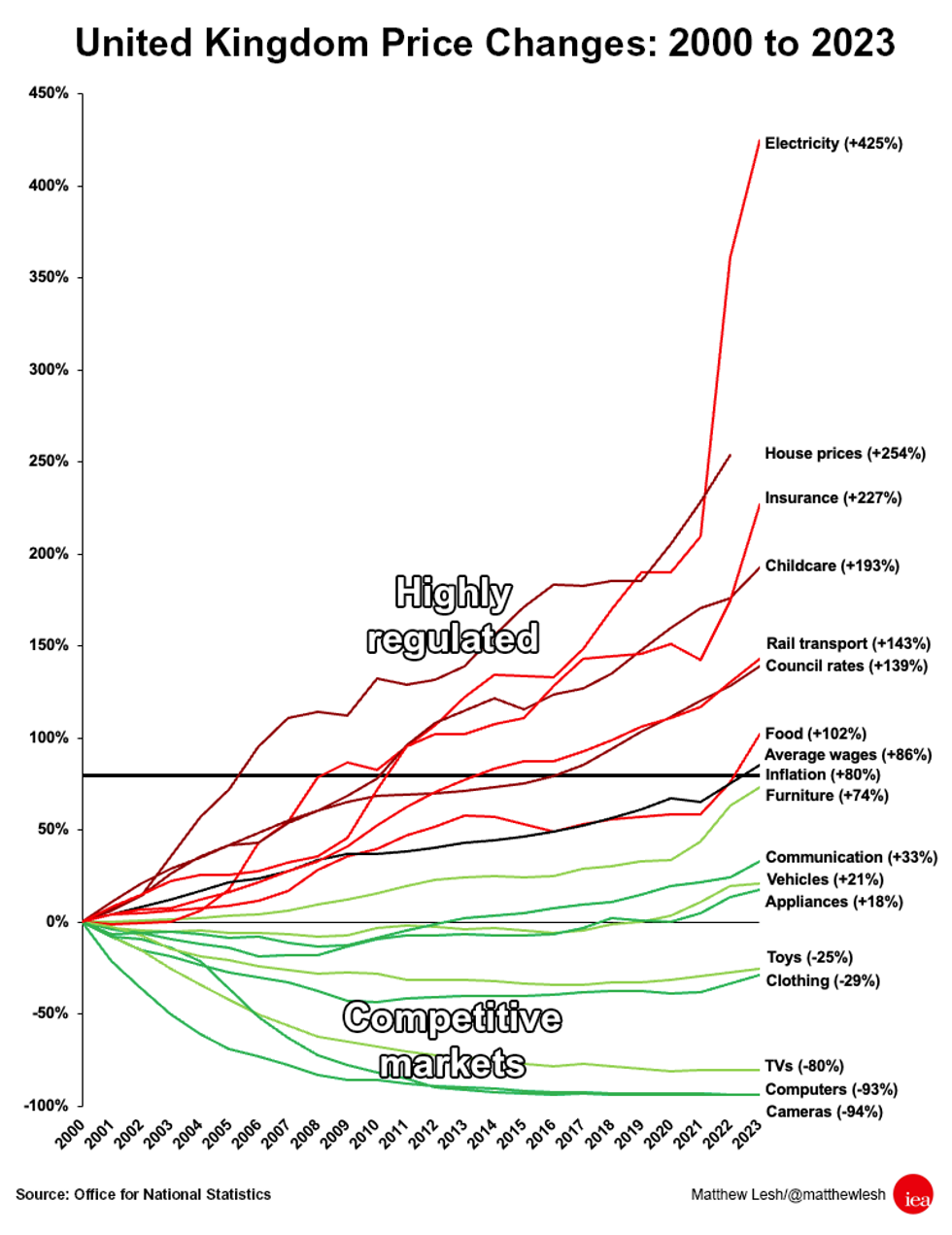Red tape significantly contributes to higher living costs in the United Kingdom, according to a new briefing paper from the free market think tank, the Institute of Economics Affairs.
The briefing highlights how price rises have varied across sectors since the turn of the century. There have been significant price rises in heavily regulated fields, while in more competitive, innovative and open markets, there have been price reductions for consumers.
United Kingdom price changes between 2000 and 2023:
Highly regulated
- Electricity (+425%)
- Housing (+254%)
- Childcare (+193%)
- Rail transport (+143%)
- Council rates (+139%)
Competitive markets
- Cameras (-94%)
- Computers (-93%)
- TVs (-80%)
- Clothing (-29%)
- Toys (-25%)
Matthew Lesh, paper author and Director of Public Policy and Communications at the IEA, highlighted how regulation increases prices by erecting barriers to new competitors and innovative ideas. Housing, childcare, and energy production have been restricted through measures like planning regulations, mandatory staff-child ratios, and decarbonisation policies.
Lesh cited academic research demonstrating that overregulation damages growth and increases prices. Studies found that a 10 per cent increase in regulation is associated with a 0.7 per cent increase in prices, 2.5 per cent increase in the poverty rate and 0.5 per cent increase in income inequality as measured by the Gini coefficient. This is further evidenced by findings that low-income households bear between six and eight times the cost of regulation compared to high income households.
Governments have often responded to higher prices by offering taxpayer subsidies like “help to buy” for housing, but this can worsen the problem, according to the briefing. “Together regulation and subsidies have created a price-spiral effect, with government ratcheting up subsidies because of consumer hardship that in the context of restrained supply, only end up further pushing up prices,” Lesh said.
The paper acknowledges other factors have contributed to price changes – such as the Russian invasion of Ukraine and the difference between tradable and non-tradeable goods – but concludes that these do not fully explain the scale of price increases across the economy.
"Brits have grappled with soaring living costs over recent years. But this is really a much longer story. For decades, red tape has forced British families to pay more for everyday products, from electricity and housing to childcare and insurance,” said Lesh.
"But the news is not entirely grim. The rapid fall in prices of cameras, computers and televisions demonstrates how innovation and competition can improve our lives. Now the challenge for governments is to undo damaging overregulation."






